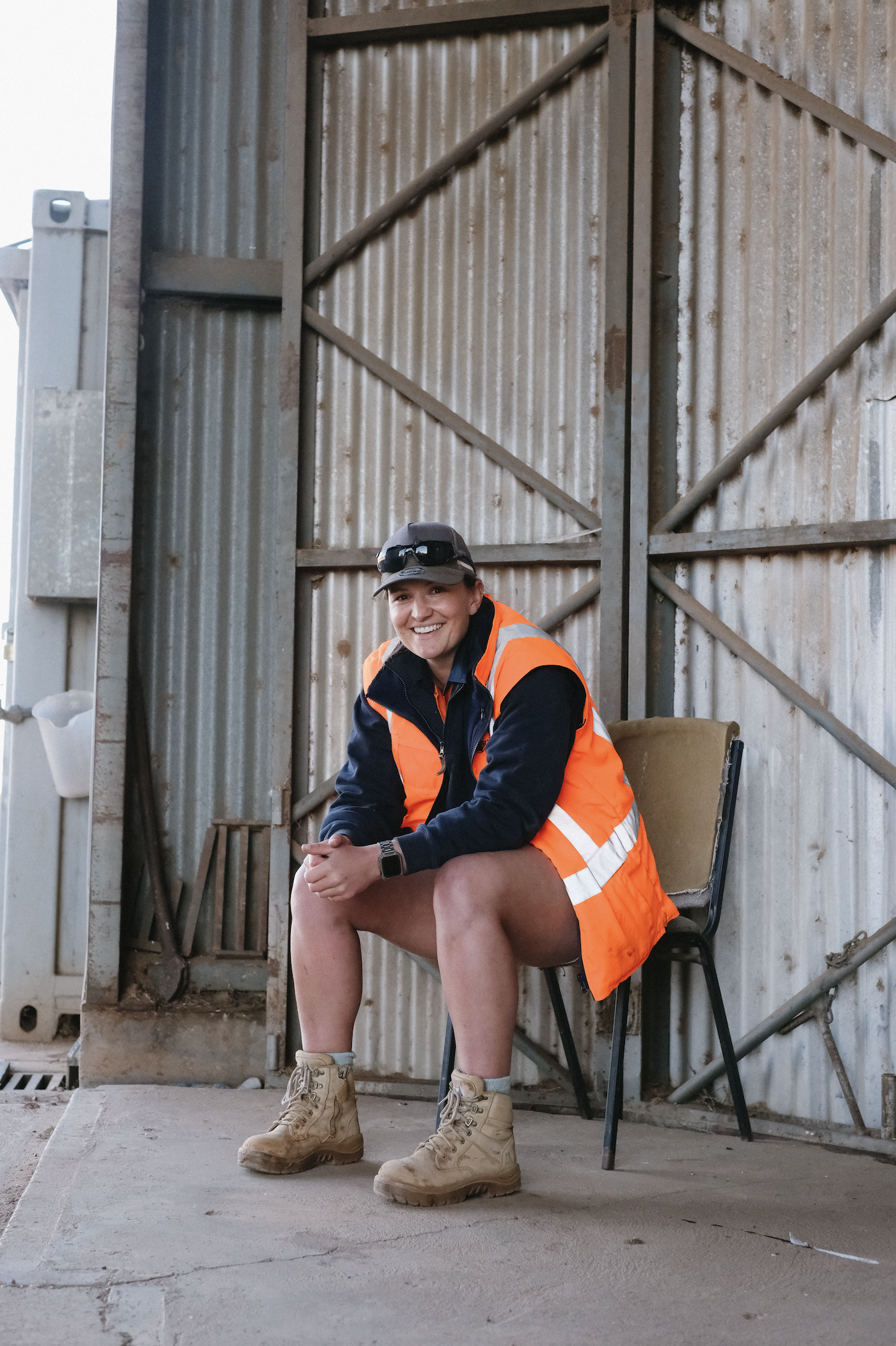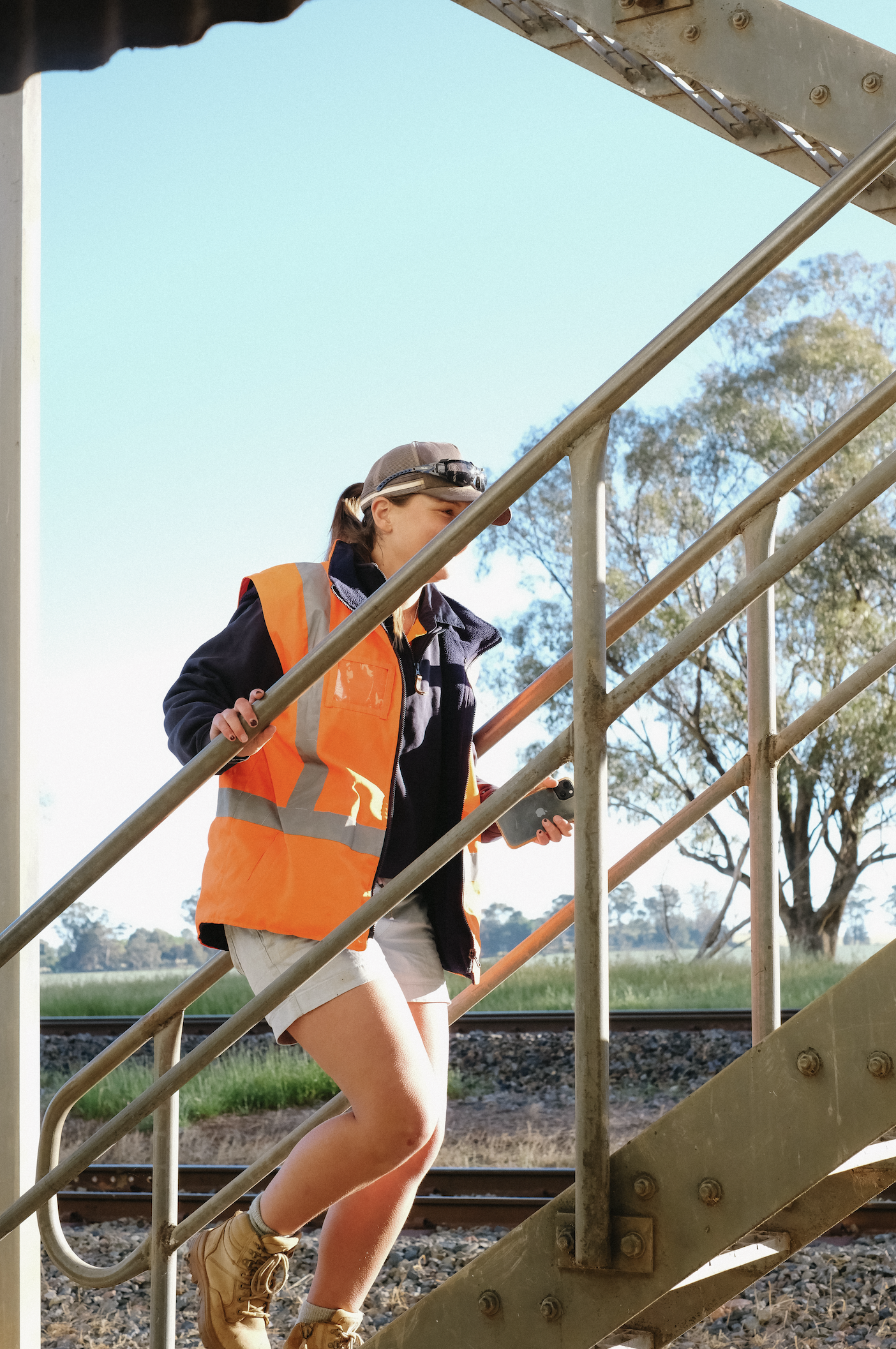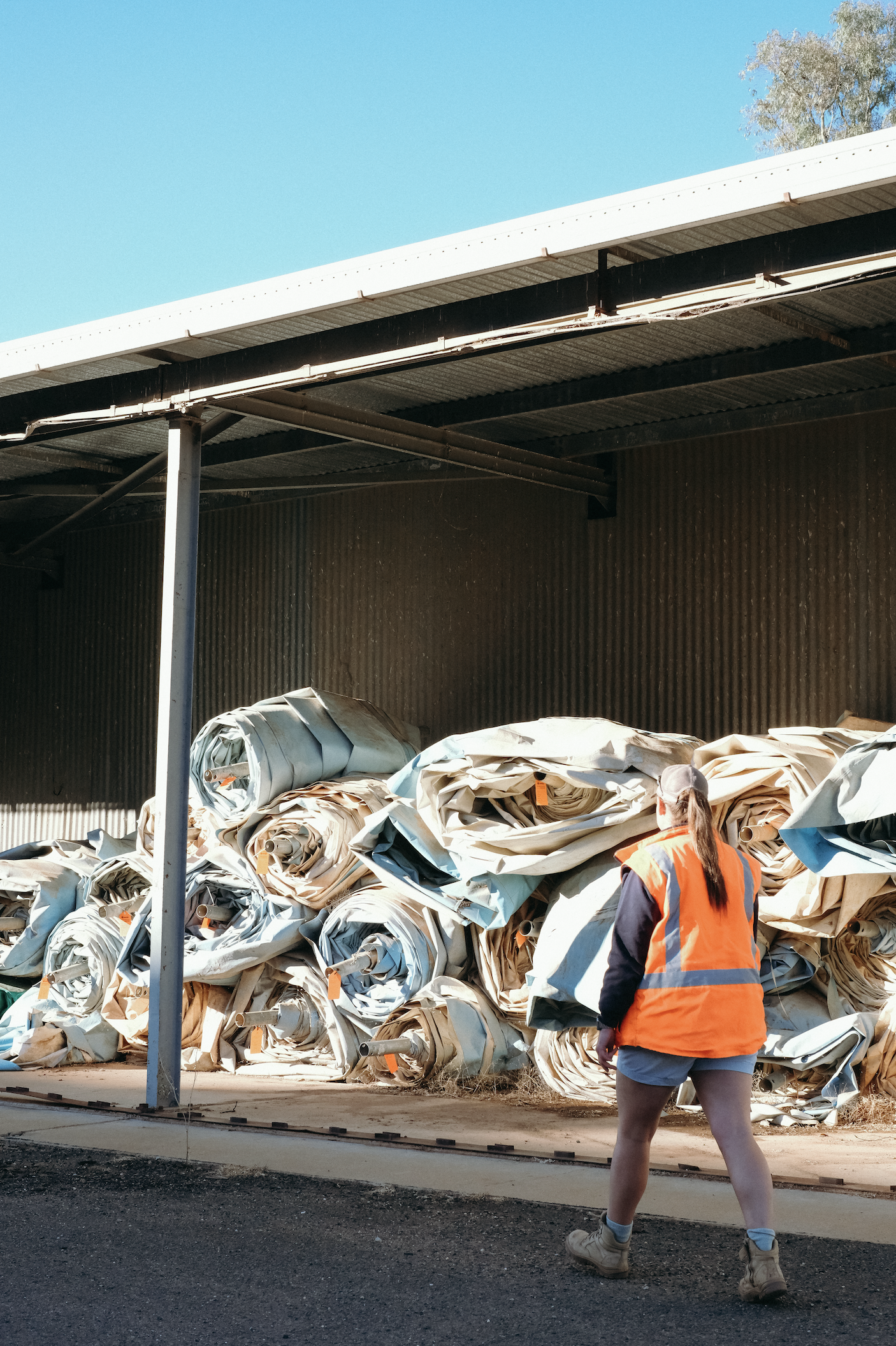Marney Johnstone
Like many young women who’ve grown up in grain growing regions, Marney Johnstone’s career in agriculture started in the GrainCorp sample stand as a teenager.
From there, a gap year turned into a stint in Canberra working for the Deputy Prime Minister. Then, almost by accident, back to the site.
In an industry still learning to recognise the strength and capability of its women, she has built a career defined by trust, hard work and the kind of grounded leadership that keeps the trucks rolling in and the grain moving out. This approach to progress defines so many regional success stories – not performative, not loud, just steady proof that change is already happening, in boots and hi-vis, behind the weighbridge, one truckload at a time.
So how did you get into working in the grain industry?
I started here with GrainCorp in the sample stand when I was in high school. I did that over harvest for my last couple of years at school. It's what you do around here, you work over harvest. After school I pursued a career that led to me working for Michael McCormack. I was working for the Deputy Prime Minister in Parliament House. That all came crumbling down when Michael was rolled, it was COVID and I found myself back at home not totally sure what to do next. It was September, working harvest was an obvious option!
All of a sudden, I was approached by my now boss to run the site here at Temora.
Do you think your connection to Agriculture pre-dates your work at Graincorp?
My mum is a nurse, my dad a shearer. I didn’t grow up on a farm myself but was always surrounded by my extended family and their farming. My fondest memories as a kid are going to the farm, marking lambs or moving sheep. I’ve always loved that side of rural living and agriculture. The things that bring everyone together.
What do you think your time here has taught you about the role women play in agriculture?
It’s taught me how much women bring to the table. I bring a completely different perspective and dynamic to my role than Gary, my boss. I just needed to be given the opportunity to show that I could do it, to be trusted enough to be given a shot.
I’m very lucky that I also have Molly – who works directly under me – we’re two women that run this site which is incredibly rare. I don’t know of any other grain receival site like that.
Molly is also the best loader driver we have in our whole cluster!
How do you think we can best celebrate rural women?
The best way is simply through acknowledgement. That's what I like, for someone to tell me I’m doing a good job. Not necessarily from upper management or someone from my team, it's the grower who comes in the gate. When I’ve won them over and they’ve gone from season to season, and at the end of it they’re happy and thank me for a job well done – that's when I feel the most celebrated.
How do you think the role of women in agriculture has changed since you started here all the way back in high school?
When I first started with GrainCorp, I didn’t know of any women working outside of the sample stand. Now I see women driving trucks. I’m seeing more women on site in different roles, not just in the sample stand. It's what I can do to make a difference and it's what GrainCorp helps me to do. I can employ whoever I want, whoever is the best man or woman for the job. I have women here working in the sample stand, but also in the weighbridge, working on the stackers, driving loaders and working in the sheds – I think it's just amazing.
That's just something that wasn’t happening ten years ago.
Could you tell me a little more about your role here?
As the site manager here at the Temora sub-station, my role changes throughout the season. During harvest we’re receiving grain from growers – roughly 300,000 tonnes – and when harvest is over, we spend the rest of the year moving the grain out of here! This site is a little different to most, as a sub-station we can both receive and outload grain via train so there are always lots of moving parts!
My days usually start with a briefing to our roughly forty staff, and then you never know where the day is going to take you. From testing grain, making decisions about where on site to store everything, consulting with farmers about how much they have for us and where it needs to go. Once we have the grain on site, we fumigate and treat it, and then ship it out to its next destination – no two days are the same.
Farmers have a choice when it comes to where they want to send their grain. So at the end of the day, it's my job to make them feel confident that they’ll be looked after here. To keep them coming through the gate and not driving down the road instead.
What advice would you give a young woman who’s considering a career in agriculture?
Just got for it. There is absolutely no reason why you shouldn’t be doing it. You going for it means that someone behind you feels more confident to do it as well. I might be a bit cheesy but I find when I see more women in agriculture, it gives me confidence to be here. Why would the answer be anything other than ‘give it a go so we can all be here together’.
This piece was delivered with the support of GrainCorp as part of our Rural Women’s Day Series.





